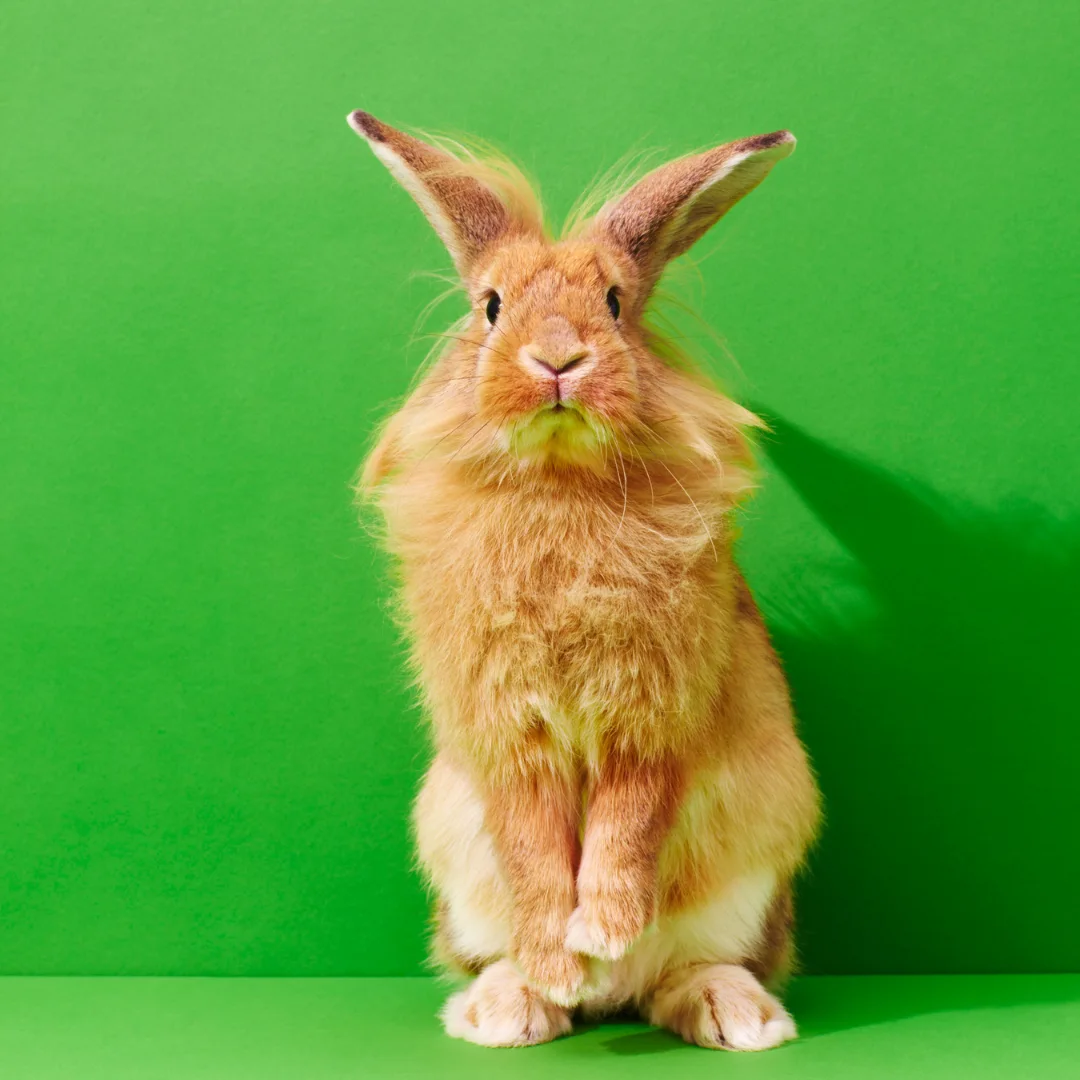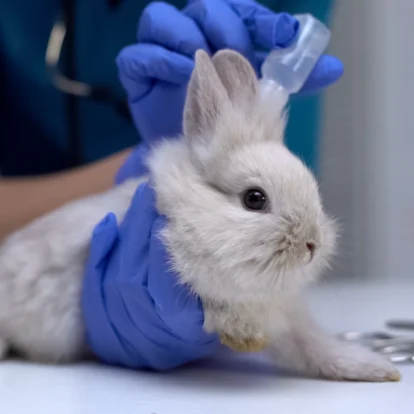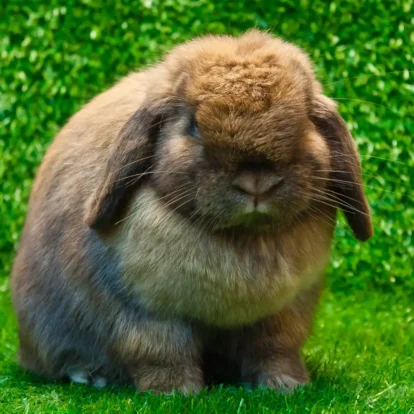Table of Contents
Introduction
Hey, fellow bunny lovers! 🐰 We all know how adorable and loving our furry friends can be. But have you ever wondered if your precious pet rabbit feels a bit off? This post is all about understanding the signs that your bunny might be stressed. Recognizing stress in rabbits is essential for their well-being, as these gentle creatures are prey animals, and their health can be pretty sensitive to changes in their environment or routine.
Scratching might seem like normal behavior, but did you know it can be a sign of a stressed rabbit? Sure, scratching can indicate pesky mites, but it could also be your bunny’s way of telling you that they’re feeling anxious. 🥺 As a seasoned bunny parent, I’ve realized how crucial it is to decode these subtle signals. By learning to read the body language and social stress signals of our companion rabbits, we can ensure they stay happy and healthy.
In this post, we’ll dive into common signs of a stressed rabbit, like aggression, fear, and hiding. We’ll explore how their behavior changes when they feel threatened or scared and discuss ways to help them feel safe again. Whether your bunny is acting out of character or seems reluctant to explore, these could be signs that something’s up. If you’re unsure, don’t hesitate to seek advice from rabbit-savvy folks or your vet. Stick around, and ensure our furry friends have the best, stress-free life possible!
5 Signs Your Rabbit is Stressed
Spotting the signs that your rabbit might be feeling stressed is so important. Not only does it help you respond quickly, but it also ensures your fluffy friend stays healthy and happy.
Here are the top 5 signs that your pet rabbit is stressed so you can monitor it and provide the best care possible. Recognizing these signs can make their lives as stress-free as possible. 🥰
1. Excessive Scratching – It’s Not Always Mites!
Sure, seeing your rabbit scratching away might make you think they’ve got mites, but stress can also lead to excessive scratching! 🐾
When your bunny is feeling stressed, they might start grooming themselves more frequently as a way to cope. While mites and other causes like dry skin or allergies can indeed make your bunny itch, it’s crucial to rule out stress, too. Scratching due to stress might be accompanied by other signs like ears flat against the head or a rigid body posture.
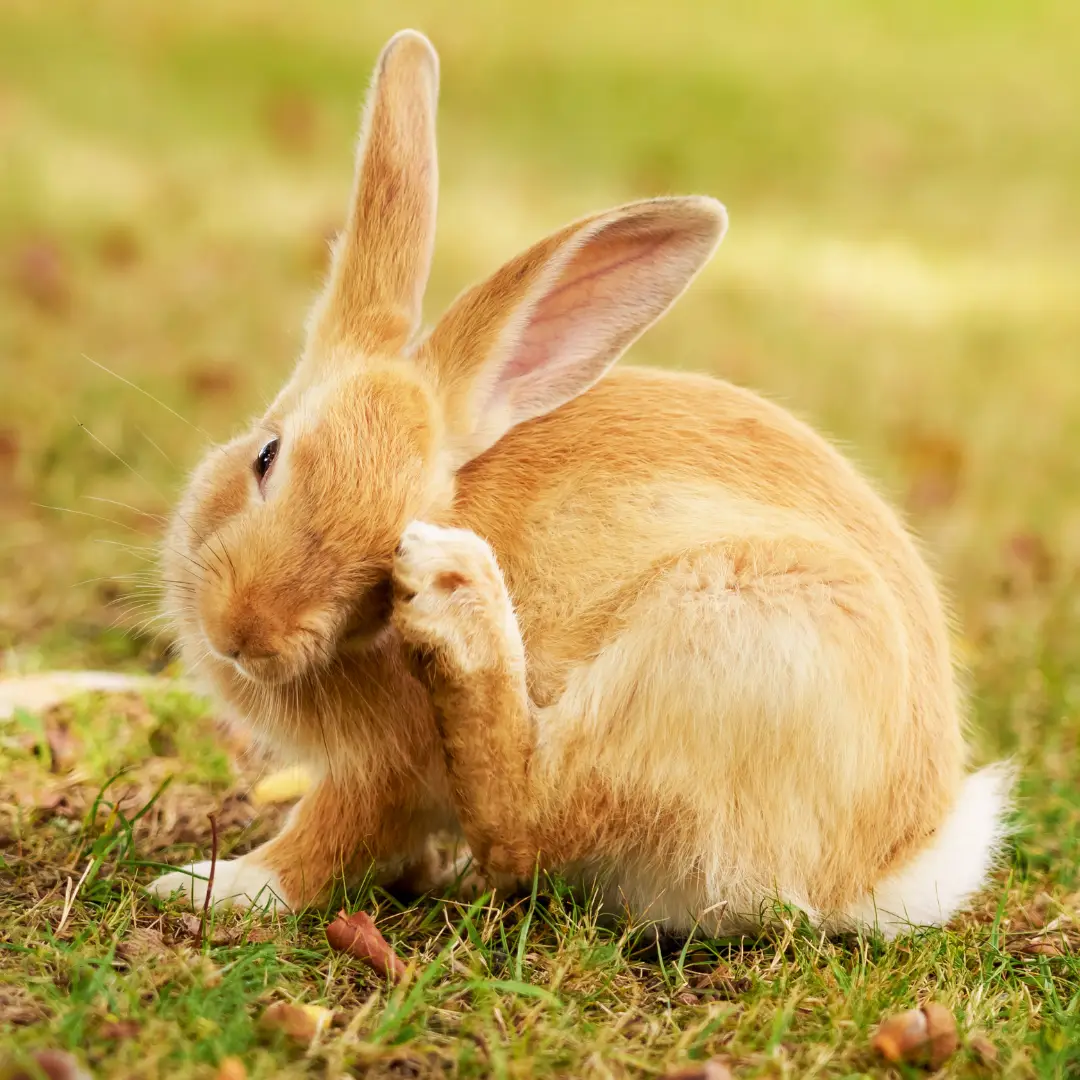
Monitor your rabbit’s environment for fear-inducing stimuli like changes in routine, other animals, or loud noises. 🌟 Keeping their environment calm and comforting is critical to reducing anxiety.
2. Hiding and Withdrawal
Rabbits are social animals, but when they start withdrawing and hiding more often, it could be a classic sign of stress. 😔
Stressed rabbits might retreat to their hiding spots longer than usual. If you’ve noticed that your bunny seems reluctant to come out, especially from places they didn’t use to hide in much, it might be time to investigate. 🕵️
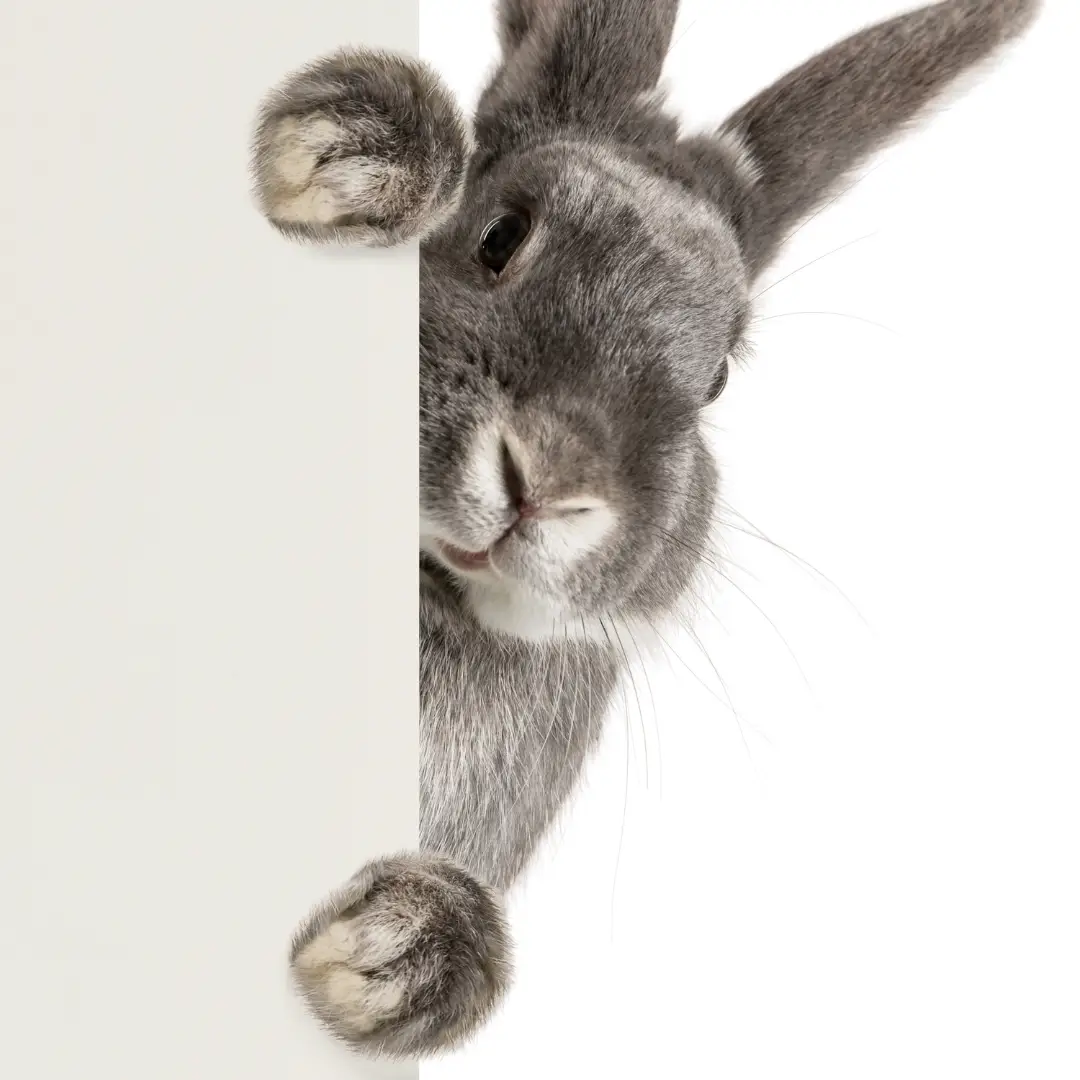
Check for changes in their environment that might have spooked them. Remember, rabbits hiding more than usual can be a sign they’re feeling unsafe. Try to spend time with them, offer comfort through gentle petting, and ensure their habitat feels secure.
3. Teeth Grinding and Glass Jaw
Ever noticed your bunny grinding their teeth or making rapid jaw movements? This could be a sign of stress, often referred to as teeth grinding or the “glass jaw” syndrome. 🦷
While a soft purring-like grinding can indicate contentment, louder grinding usually indicates discomfort or stress. When your bunny’s jaw moves quickly, almost as if it’s chewing air, it’s another indicator that it might be feeling unwell.
Keep an eye on their overall rabbit’s body language. Stress might be the culprit if accompanied by other signs like ears flat against the head or restlessness. Always consider medical causes like dental issues, too, and consult your vet if you’re unsure!
4. Loss of Appetite or Overeating
Changes in appetite are another big red flag for stress in rabbits. 🥕 An anxious bunny might either lose interest in their food or munch away more than usual. Both extremes signal that your pet rabbit might be feeling stressed.
While stress can lead to these changes, always be aware of other potential causes, such as dental issues, an illness, or even changes in your rabbit’s daily routine.
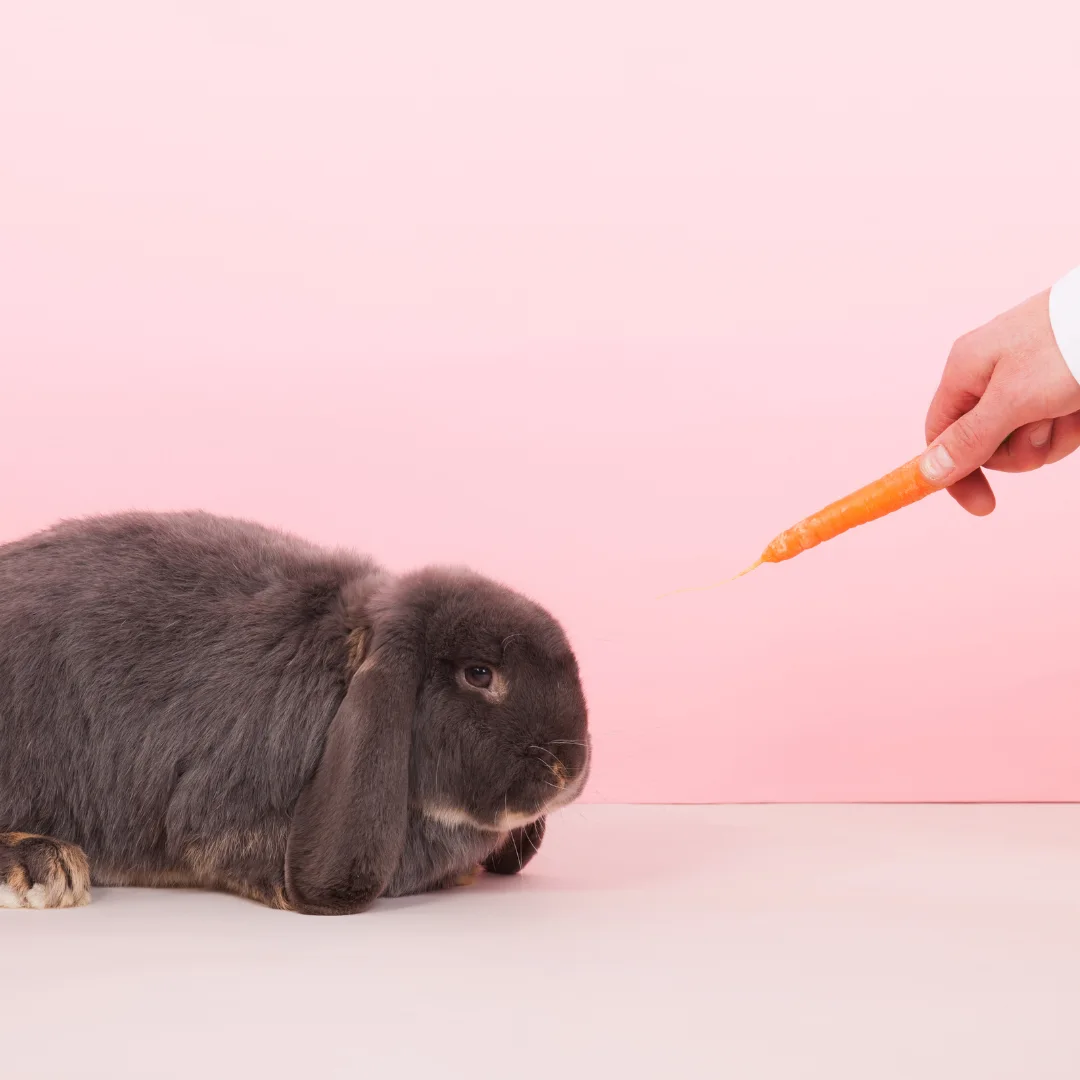
If you notice your bunny isn’t their usual self at mealtimes, it’s a good idea to look closer at their environment and health.
5. Aggression or Unusual Vocalizations
Has your usually gentle bunny started lunging, biting, or making odd noises more frequently? 🐇 Aggression and unusual vocalizations like excessive thumping are common signs of stress.
While rabbits do this to communicate fear or assert territoriality, increased aggression might mean they’re feeling threatened or scared. Changes in your rabbit’s environment, new pets, or even loud noises can trigger this behavior.
Pay close attention to your bunny and see if you can identify any fear-inducing stimuli. 🥺 Remember, by understanding these actions, we can provide better care and ensure our rabbits lead a peaceful, happy life.
Reducing Stress in Your Rabbit
Now, let’s discuss how to reduce or even prevent stress in your pet bunny. 🐰 Whether dealing with a baby rabbit or an old friend, these insights will help you create a safe and serene environment that significantly reduces stress levels.
Creating a Rabbit-Friendly Environment
First things first, let’s talk about your rabbit’s home. 🏡 Making sure your bunny has a spacious cage is crucial! They need enough room to stretch out those back legs and hop around. Think of it as their mini kingdom where they should feel like royalty. Add some cozy hiding spots where they can retreat when they need a little “me” time away from all the action.
Enrichment is also vital to keeping your bunny entertained and mentally stimulated. 🌟 Toys, chewables, and tunnels can turn their home into a playground. And don’t forget regular exercise time outside the cage! It’s essential for their health—both physical and mental. Letting them explore a bunny-proofed area can do wonders.
Minimize Disruptions and Loud Noises
Rabbits are naturally prey species, which makes them quite sensitive to sudden changes and loud noises. 🐰 Try to keep their environment as calm and predictable as possible. Consistency helps them feel secure, meaning fewer reasons to stress out.
When you need to vacuum or do something noisy, consider providing a safe space where your bunny can retreat until the hubbub dies down. 🧹Their cozy hiding spots or a separate room can be a great refuge to keep their stress levels in check during such events.
Rabbit Companionship – Friend or Foe?
Rabbits are naturally social creatures and can feel lonely if left in solitude for too long. Introducing another rabbit can be a fantastic way to provide mental stimulation and companionship. 👫 However, it’s important to remember that first impressions are crucial. Gradual introductions are a way to go to avoid unnecessary stress and ensure a harmonious relationship.
Keep an eye out for the most common signs of stress or aggression when pairing bunnies. Regular check-ups with your vet can help ensure that both rabbits adjust well and feel happy in their new arrangement. 😊
Maintain a Consistent Routine
Rabbits thrive on routine, so consistency is your best friend here. ⏰ A stable feeding and cleaning schedule can help your bunny feel more secure and less stressed. This predictability helps them know what to expect so they can relax and enjoy their day.
Positive reinforcement training can also be a great way to build trust with your bunny. 🎓 Rewarding them for normal behavior like proper toileting habits or using their water bottle can bring reassurance and affection into your relationship. Plus, it’s a fantastic way to bond and keep your bunny feeling happy and loved.
By following these tips, you can create a loving, low-stress environment where your bunny can thrive. 👌 🐇
Conclusion
Recognizing stress in rabbits is crucial to ensuring our fluffy friends lead content and relaxed lives. From my own experience, it’s clear that understanding your bunny’s behavior and picking up on signs of stress in rabbits can make a world of difference. Maybe your bunny is itchy due to more than just mites, or perhaps they’re showing some other subtle signs of distress. Either way, being aware means you can take swift action to help them feel happy and comfortable.
If you ever suspect your rabbit might be feeling stressed, don’t hesitate to consult your veterinarian. They can offer invaluable guidance and reassurance to ease your mind. After all, a happy bunny makes for a happy home. Ensuring our rabbits are stress-free is a win-win—they get to enjoy a serene and joyful life, and we get the joy of seeing them thrive! 🐰💖

